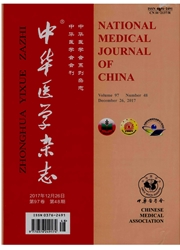

 中文摘要:
中文摘要:
目的 探讨体外内皮细胞膜微粒(EMP)对血管内皮细胞通透性功能影响及其在股骨头坏死方面的作用.方法 在激素诱导下,体外将内皮细胞自体产生的膜微粒与内皮细胞共培养,评估共培养下内皮细胞通透性变化.结果 流式细胞仪结果提示在经10 mmol地塞米松共培养24 h条件下,可刺激内皮细胞生成最多EMP(7.66×104个/ml),同时7.66×104/ml、7.66×103个/ml浓度的EMP组(高中浓度组)可明显影响内皮细胞通透性(P<0.05),7.66×103个/ml浓度的EMP组(低浓度组)则不明显(P>0.05).结论 DEX在体外可刺激内皮细胞产生EMP,而EMP到达一定浓度可破坏内皮细胞之间的连接,导致内皮细胞通透性增高,从而降低了血管稳定性,进一步引起股骨头缺血坏死.
 英文摘要:
英文摘要:
Objective To investigate the effects of EMPs on HUVECs permeability in vitro,then evaluate the effect on the Avascular Necrosis of Femoral Head. Methods Incubate HUVECs with EMPs which is released by HUVECs in vitro,then estimate the endothelial permeability. Results Flowcytometry analysis showed that EMPs were released at maximum concentration (7. 66 × 104/ml ) after 24 hours stimulated by 10 mmol DEX And 7.66 × 104, 7.66 × 103/ml concentration (moderate and high concentrations) of EMPs caused injury to the permeability of HUVECs ( P values are 0. 002 and 0. 031respectively, 〈0. 05 ), while 7.66 × 102/ml concentration ( low concentration ) of EMPs didn't ( P =0. 425 〉 0. 05). Conclusion Dexamethasone can induce HUVECs to release EMPs in vitro. EMPs caused collapse of connections of HUVECs, and increase the HUVECs permeability, decrease vascular stability,finally lead to Avascular Necrosis of Femoral Head.
 同期刊论文项目
同期刊论文项目
 同项目期刊论文
同项目期刊论文
 期刊信息
期刊信息
